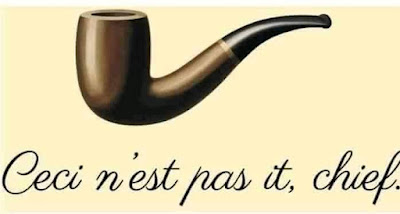When You Come, Then You'll See: Real Drama! (i.e. Not My Own)
In both my Intro to Lit and Creative Writing classes I've been covering drama for the past two weeks, and it's been a light, bright breath of fresh air in a semester that's kind of stagnating. It means I get to show scenes from movies I love and respect (since scenes of stage plays are damn near impossible to get) and talk about how text and visual image intersect, how story is developed, how tension is created and dissipated, symbols, differences between direction and script, etc.
I've been using Lucas Hnath's Red Speedo in creative writing, which is brilliant and darkly funny -- but only one of my students really commented on its humor. I thought that was strange. (Are we so far into the semester and the joylessness of deadlines that students can't pick up on jokes?)
 |
| Always. Be. Closing. |
Anyway, Hnath's writing in that particular play has been compared to Mamet, another of my loves, and while I kinda see the comparison, I more or less used it as an excuse to bring in a handout of a short Mamet play from Goldberg Street: Short Plays and Monologues, and then to watch the opening scene(s) of Glengarry Glen Ross. Then, moving on to another master of dialogue, we watched that incredible opening scene from Inglorious Basterds. Tarantino is so much fucking fun.
In Intro to Lit yesterday we just read Peter Maloney's Leash and Melanie Marnich's The Right to Remain out loud together, and the result was, well, really interesting. Usually I assign these plays to the class for them to read on their own, but I think that from now on we might read them together (they are both very small one-acts, so it's doable). It was so rewarding and gratifying to see students actually moved by the material, and hear their first thoughts -- it's difficult not to be moved by Maloney's play, in particular.
And in our Developing Creativity class, we've just watched Manifesto, with Cate Blanchett being awesomely Cate Blanchett and funny and moving and mysterious as she proclaims so many different manifestos from the originators of so many different art movements.
This is all to say that sometimes dramatic lit does exactly what it's supposed to do: remove us from our own lives, provide catharsis, and then place us back into our lives with a better sense of perspective, a little more wisdom, and a little more clarity -- or even with more confusion, but a confusion that lets you know a veil has been lifted, and that somehow you're un-seeing something that was distorted (for you) previously.
And it's nothing short of amazing these days when something works the way it's supposed to work. And that's not pure cynacism -- it's more celebration than anything else. I really love other people's writing.



Comments